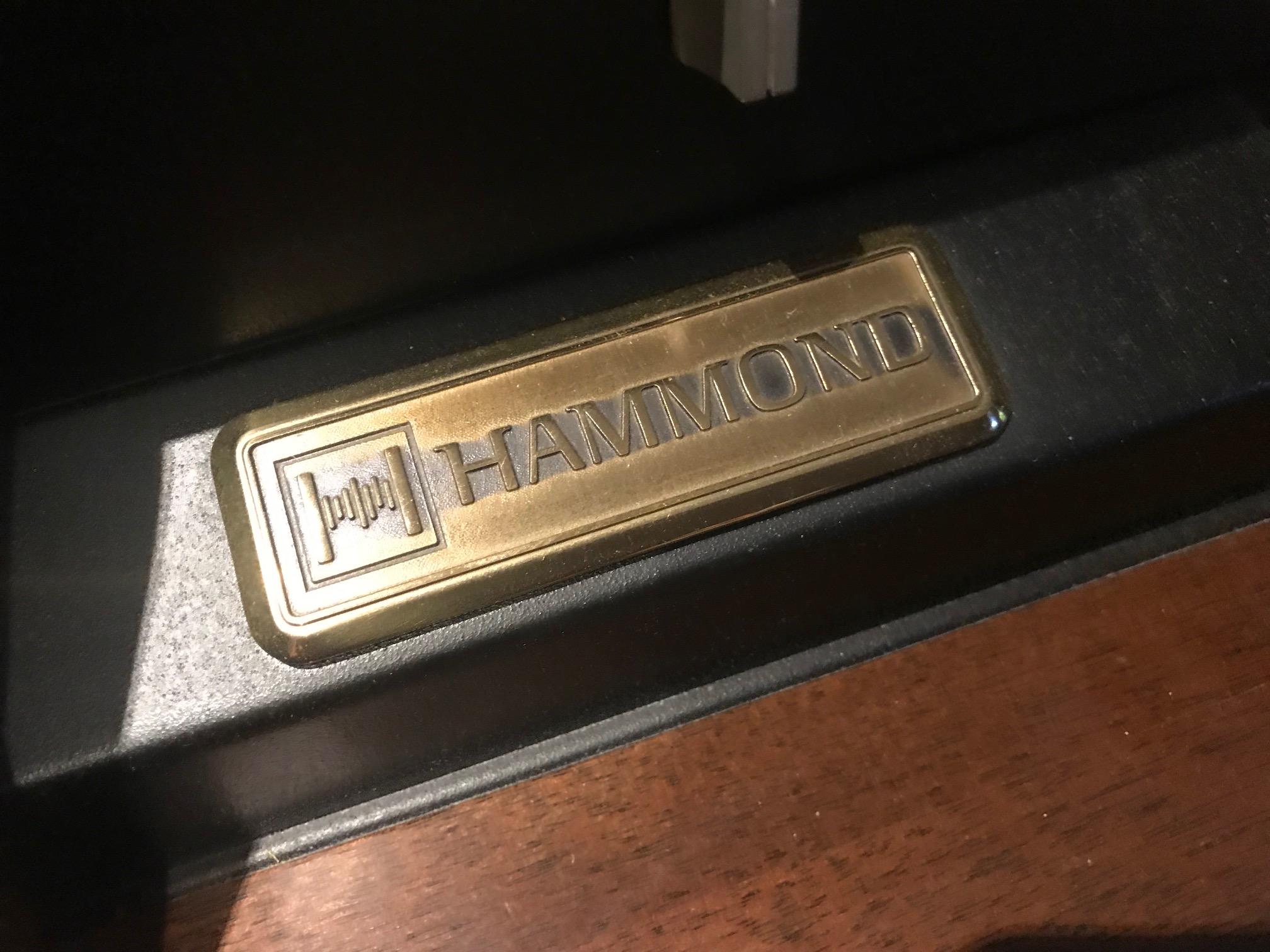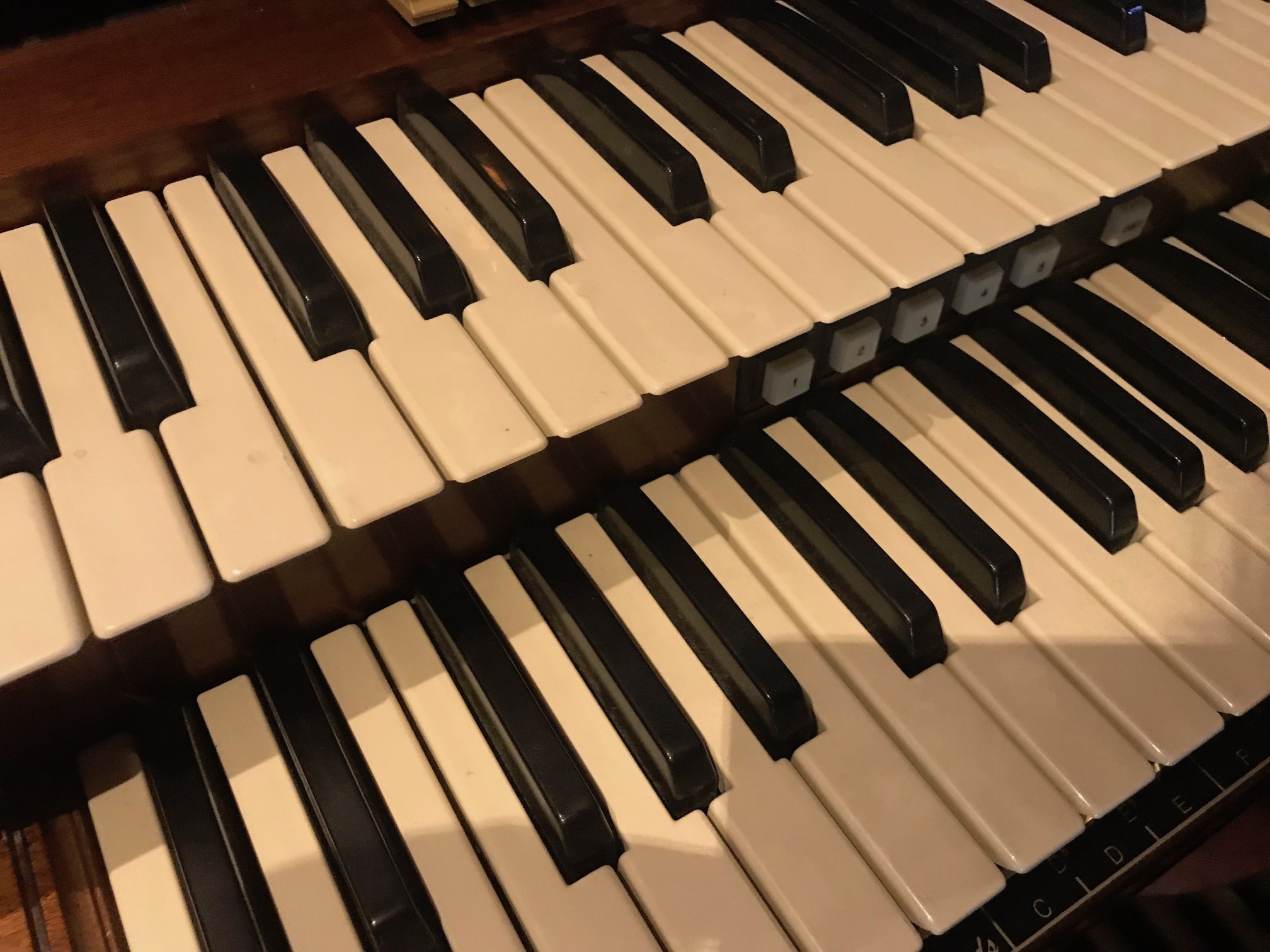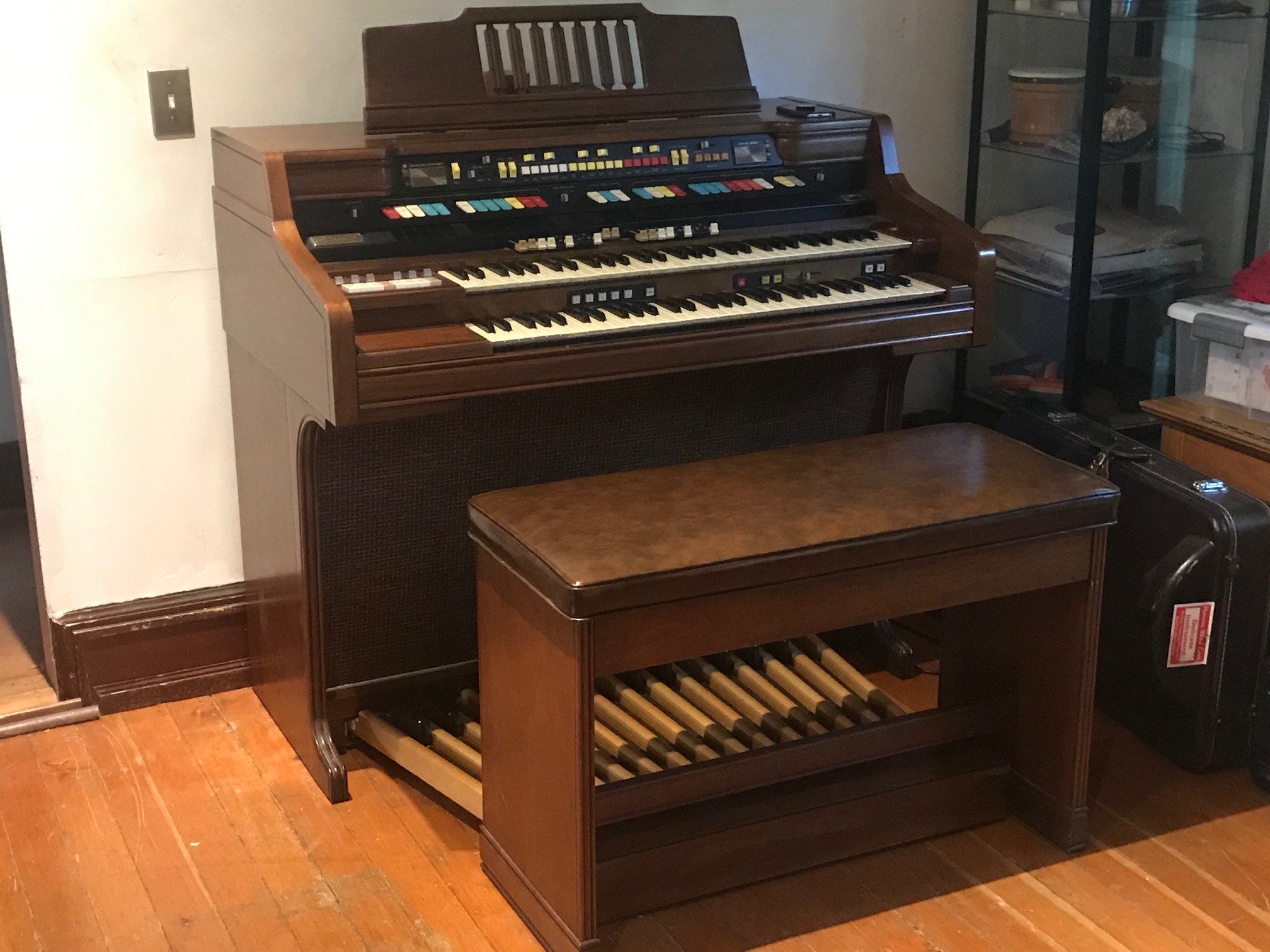Keyboard for 1975 Hammond organ: 73 ppm Lead + 186 Cadmium (& why I make an “exception” for instruments.)
When tested with an XRF instrument, the plastic keys of this 1975 Hammond organ keyboard (with the full organ pictured below) had the following readings:
White Keys of Organ Keyboard
- Lead (Pb): 73 +/- 7 ppm
- Cadmium (Cd): 186 +/- 10 ppm
- Barium (Ba): 387 +/- 77 ppm
- Zinc (Zn): 249 +/- 14 ppm
- Iron (Fe): 61 +/- 20 ppm
- Titanium (Ti): 11,500 +/- 400 ppm
Black Keys of Organ Keyboard
- Lead (Pb): 9 +/- 3 ppm
- Cadmium (Cd): 27 +/- 9 ppm
- Barium (Ba): 158 +/- 96 ppm
- Zinc (Zn): 211 +/- 12 ppm
- Iron (Fe): 622 +/- 35 ppm
- Titanium (Ti): 994 +/- 232 ppm
Test results reported on this blog are science based, accurate, and replicable. All tests are done for a minimum of 60 seconds, and repeated multiple times to confirm the levels. Tests are done using an XRF instrument that gives readings in parts per million (ppm). If a metal is not listed above, it was not detected by the XRF instrument in the testing of this item.
My “exception” for musical instruments:
Music is the engine that drives our household. Many musical instruments have at least some amount of Lead. While I would not allow my children to put their mouth on a highly Leaded recorder and I would not allow my children to use Lead painted maracas, there are some instruments where a Lead-free alternative is simply not a possibility (or would be a expense-is–no-object, custom-made item – and completely cost-prohibitive) and this is the SINGLE area of exception in our home when it comes to Lead. We have nothing else with Lead in the house – but a few of our instruments do have some (usually minor) components that test positive for (usually very low levels of) Lead (or other toxicants.)
With very few exceptions – along the lines of those maracas and that recorder! – the benefits of having musical instruments in your home (so your children can pick them up and explore making music whenever they want) far outweigh any risks. I always advocate for having as many instruments in your home as possible (especially if you have children whose lives have already been impacted by Lead exposure) – and we have been so lucky to have been given high-quality instruments for free by friends, family and even strangers (like this organ)! Our family has a piano, drums, a euphonium, trumpets, saxophone, accordion, trombones, many guitars, tambourines – and now an organ!
In some cases, it is definitely worth the expense to buy a Lead-free component for an instrument, for example this past year my 17 year old son A.J. saved up and purchased a Lead-free Monette mouthpiece for his trumpet. This mouthpiece alone was nearly $300 (for a trumpet that cost just about $1,000 when we originally bought it in 2016 – as a gift to A.J. from my Late mother.) Because the mouthpiece is the part that actually goes in his mouth (or up against his mouth), this was an important thing to get replaced with a Lead-free alternative.
In the case of the keys of this particular keyboard (pictured on this post), the Lead levels are low enough – well below the current/modern level of concern for items used by children (90 ppm Lead or higher in the paint or coating, and 100 ppm Lead or higher in the substrate), that I don’t have a concern for the kids playing the instrument. The Cadmium in the white keys is a bit more concerning [there is currently no Federal regulation governing Cadmium in the U.S; the State of Washington Cadmium regulation considers a consumer good unsafe with Cadmium levels of 40 ppm or higher], but it is also quite low compared to many other items I have tested (like the cadmium levels I have found in a lot of vintage dishware and cookware) and what little there is likely bound up within the plastic (especially given the “normal use” of keyboards does not include putting your mouth on them or exposing them heat or to acids – like the ways toxic cookware or dishes are exposed to the heat of cooking and to the acids found in many foods).
Simple Solution:
While I am not particularly worried about the levels of Lead and Cadmium in the keys (because of the specific use of the item – and the fact that they are never going to go in anyone’s mouth in our house!) I have asked that my children wash their hands thoroughly with soap and warm water after playing the organ – to address any potential (minor / hypothetical) exposure concerns .
While I don’t consider this necessary, Avi (my 14 year old son who was acutely Lead-poisoned at 7 months old) has chosen to wear disposable single-use food-prep gloves when playing the organ. [Because he has plaque psoriasis all over his hands, we buy these online by the box for him for many applications (and the food service gloves – like you might see a worker in a fast food restaurant using – are very thin and only cost two cents each). Here’s an affiliate link* so you can see which gloves we bought last.
Studies showing the benefits of learning and playing (and even just listening to) music abound. Specifically, exposure to music has been shown to have the impact of strengthening mental capacity in many other areas — which is a great resource for children like Avi, who have deficits (and specifically, a diagnosed brain injury) as a result of their Lead exposure.
Here are some interesting recent articles and studies:
- WebMD: 5 Ways Music Helps The Mind
- Study Music Increases Your Brain Power (2018)
- Music and the Brain (Scientific American, 2006)
- Music has powerful (and visible) effects on the brain (Science Daily, 2017)
- Music increases brain function (Live Science, 2009)
In any case – solutions are easy to find in order to keep music in your life. It’s too important to not find accommodations.
As always, than you for reading and for sharing my posts.
Please let me know if you have any questions.
Tamara Rubin
#LeadSafeMama
*Amazon links are affiliate links. If you purchase something after clicking on one of these links I may receive a small percentage of what you spend at no extra cost to you.
Never Miss an Important Article Again!
Join our Email List






Do you ever worry about lead weights in piano keys?
Second the above question… We are thinking of getting a piano and, as I research I find that key the weights are made of lead? And they swell and corrode and that’s how piano keys get stuck! Ugh.